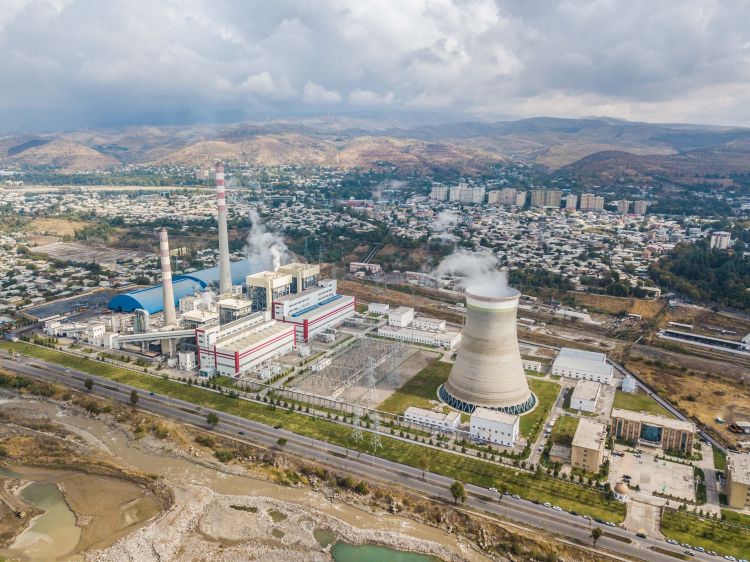Energy and heat shortages had troubled the inland mountainous country of Tajikistan since its independence. But everything has changed since a group of Chinese companies and engineers came to the country in Central Asia.
With the full operation of China-built Dushanbe No. 2 thermal power plant, one of the most important projects of public benefit in Tajikistan, Tajikistan bid farewell to a 20-year winter power brownout in 2017.
"The Dushanbe No. 2 thermal power plant is an important step that we have taken toward the goal of energy independence," Tajik President Emomali Rahmon said of the project, praising the power plant as an embodiment of positive cooperation and a model of high-level cooperation between China and Tajikistan.

The 400 MW Dushanbe No. 2 Thermal Power Station designed and constructed by a Chinese company has greatly relieved Tajikistan's power and heat shortages during the winter, October 9, 2018. /Xinhua
The 400 MW Dushanbe No. 2 Thermal Power Station designed and constructed by a Chinese company has greatly relieved Tajikistan's power and heat shortages during the winter, October 9, 2018. /Xinhua
Tajikistan has abundant water resources, but its hydropower plants cannot generate electricity in winter when the waters freeze. The old thermal power plant built in 1957 cannot produced enough electricity and heat for daily life in the capital city of Dushanbe.
The new power plant became the largest thermal power plant in the capital city, with the capacity to meet 60 percent of Dushanbe's demand for electricity and heat. The residents are no longer worried about electricity in winter, and the local industrial enterprises do not have to suspend production in winter any more.